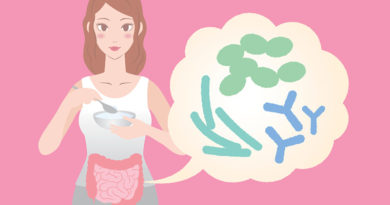Latest Studies on Probiotics Supplementation: Can They Really Make You Healthier?
In the United States alone, approximately four million people use prebiotics or probiotics. While these two words are often confused under the same concept, they are not the same.

- Prebiotics: These are compounds that the body is not able to digest, but they have a physiological effect on the intestine. It favors the activity and growth of beneficial bacteria (lactobacilli and bifidobacteria).
- Probiotics:They are active living microorganisms that in enough quantities alter the intestinal microbiota, both by colonization and by implantation. It has many beneficial effects if ingested in good quantities.
Some advocates of these supplements claim that it can increase immunity, balance the digestive system and encourage metabolism. But the question is whether they can really improve our health?
In some cases, probiotics may be effective in the treatment or prevention of some diseases; However, some studies show that probiotics may not be as good for the body. According to new research under international collaboration points to the lack of information on the side effects of probiotics.
Independent Studies on Probiotics
According to some studies carried out in a small number of participants, they showed that probiotics can be used from treatments of certain skin disorders to improving symptoms of autism.
Many believe that having no appropriate control groups, the results of many of these studies may be influenced by the placebo effect.
The meta-analysis on probiotics denotes the lack of evidence that supports the effectiveness of probiotics in the treatment and prevention and impact of some diseases such as urinary tract infections, preterm labor, Crohn’s disease, among others.
For worse, many types of probiotics found in any health food store are not regulated, therefore, they may not be properly standardized and labeled as the case of the well-known VSL#3 that demonstrated different levels of efficacy in a study to treat colitis.
The Discussion
So, what if probiotics are not really what they seem or what they propose for health?
Probiotic advocates discuss these conjectures since there are no side effects for them. On the other hand, pharmacists claim that probiotics – considered safe for health – little is known or there are not many efforts to understand the side effects. In fact, from a recent investigation of 384 clinical trials (using prebiotics, probiotics, or both) with the goal of altering the microbiome, 70 percent of the trials did not report the number of patients who abandoned the tests due to negative side effects or other adverse events.
This is totally different from the research carried out with new drugs to treat cancer, for example, in which high controls and safety reports are required in large numbers of patients before being approved by the Food and Drug Administration (FDA).
The results of a study published in Cell in 2018 reported the side effects of probiotics in humans and mice, delaying the recovery of the intestinal microbiome to a pre-antibiotic state. While this study should be replicated due to the small number of participants, it certainly opens a door for more research on the use of probiotics.
Other studies show, for example, an increase in the genus Bifidobacterium and an acceptable decrease in the genus Prevotella in patients with Parkinson’s. Another shows a smaller amount of SCFAs (Short-chain fatty acids), a metabolic product of intestinal bacteria, in Parkinson’s patients. The hypothesis says that the lack of these acids contributes to some symptoms of the disease, and another study suggests that SCFAs contribute to their progression.
Probiotics: What to Consider?
If we still don’t know what kind of metabolic byproducts or species contribute to disease, how could we know what kind of bacteria we should use in probiotic treatments?
However, probiotics are not necessarily dangerous for people and at the same time they are not necessarily safe. If in doubt it will take us a while to fully understand the human microbiome.
Then, before running like a racehorse in the Kentucky Derby to buy these types of supplements, consult your doctor or find studies that support the use of probiotics to treat certain conditions.
From our side, we can only recommend taking the necessary precautions before undergoing probiotic treatment. Be safe!

